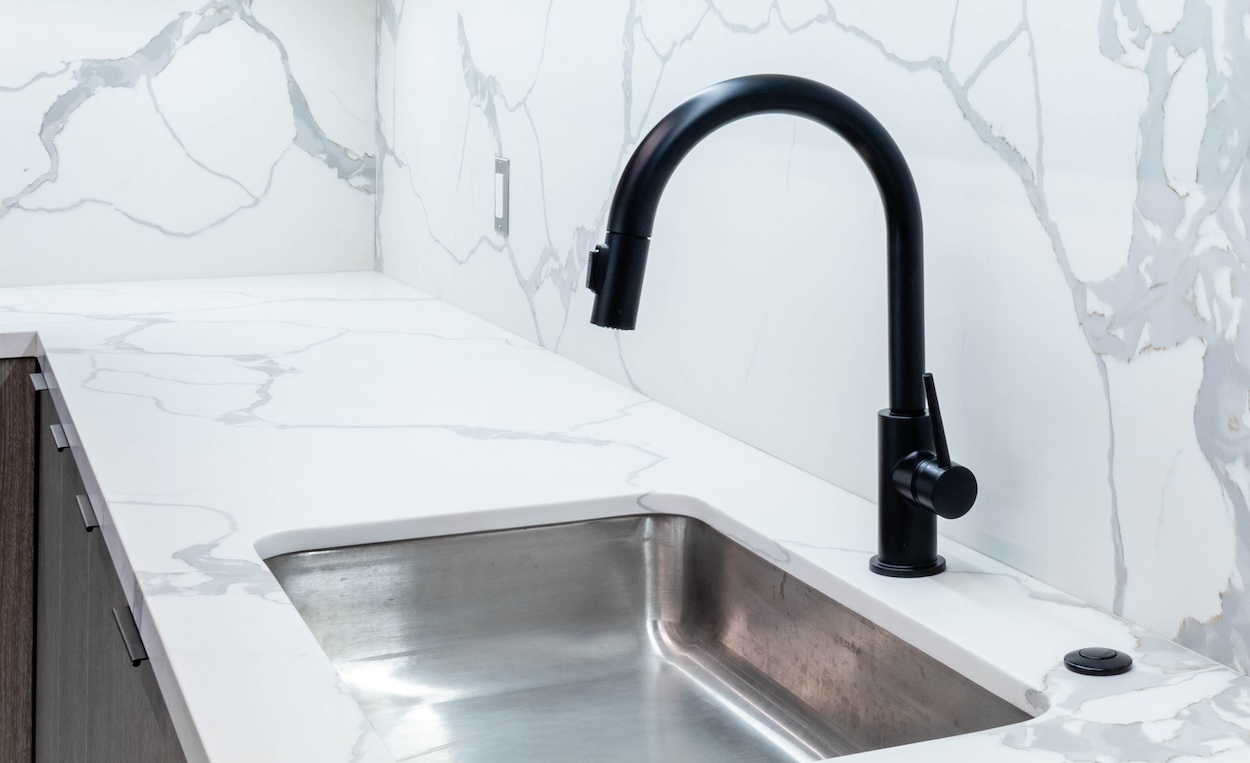How Much Does A Boiling Water Tap Cost To Run?

In modern kitchens, boiling water taps are fast becoming a must-have appliance due to the convenience, efficiency, and elegance they offer.
These innovative fixtures provide instant hot water at your fingertips, drastically reducing the time spent waiting for a kettle to boil.
But what about the cost?
Beyond the initial investment, have you wondered about the running costs of a boiling water tap?
Understanding the energy consumption and overall running costs of this appliance is crucial in making an informed decision about its value in your kitchen.
In this guide, we'll break down the factors contributing to the running costs of a boiling water tap and give you a clearer picture of the expenses involved.
Whether you're contemplating an upgrade to a boiling water tap or looking to understand your current usage better, this guide will provide the insight you need.
Click here to view our range of Instant Boiling Water Taps.
How Much Does A Boiling Water Tap Cost To Run?
The cost to run a boiling water tap depends on several factors, including the model of the tap, its energy efficiency, the amount of water you use, and the price of electricity in your area.
Here's how you can determine the running cost of a boiling water tap:
1. Model and Energy Efficiency:
Different models of boiling water taps have different energy efficiencies.
Some models are designed to use less energy by better insulating the water tank to maintain the temperature, while others might consume more power.
Usually, the manufacturer provides information about the tap's energy consumption, which can help you calculate the running cost.
2. Usage:
The more you use the tap, the more energy it will consume.
If you're frequently using the boiling water tap, the running cost will be higher.
Consider how often you use the tap and the volume of water you typically dispense.
3. Cost of Electricity:
Finally, the cost of electricity in your area will directly impact the running cost.
Multiply the energy consumption of the tap (usually given in kilowatt-hours or kWh) by the cost of electricity to get an idea of the running cost.
Let's say, for example, that your boiling water tap uses 0.5 kWh per day, and the cost of electricity is 15 pence per kWh.
Your daily running cost would be 0.5 kWh x 15 pence = 7.5 pence.
Over a year, the running cost would be 7.5 pence x 365 days = £27.38.
It's important to note that these calculations are rough estimates, and the actual running cost can vary based on your specific usage patterns and energy rates.
However, most manufacturers claim that their boiling water taps cost just a few pence per day to run when used appropriately.
This, in conjunction with the convenience and time-saving benefits, makes a boiling water tap a valuable addition to any kitchen.
- Related Post: How Do Boiling Water Taps Work?
How Much Electricity Does A Boiling Water Tap Use?
The amount of electricity used by a boiling water tap can vary depending on several factors including the specific model of the tap, how often it's used, and how well insulated its tank is.
However, as a general guideline, many modern boiling water taps are designed to be energy-efficient and some manufacturers claim that their models use approximately 0.5 kWh (kilowatt hours) of electricity per day.
This is based on the assumption that the tap is used for a total of approximately 10 minutes throughout the day.
For a more precise estimation, it would be best to refer to the product specifications provided by the manufacturer, which typically outline the appliance's energy consumption. Keep in mind that energy consumption can also be influenced by usage habits.
For example, using the tap infrequently but for longer periods each time may consume more energy than using it frequently but for shorter periods.
It's worth noting that, although boiling water taps do use electricity to keep water heated, they can be more energy-efficient than traditional methods of heating water such as boiling a kettle, particularly when only a small amount of boiling water is needed.
- Related Post: How Much is a Boiling Water Tap to Buy?
Professional Input from a Skilled Kitchen Manufacturer and Fitter
From years of working in the kitchen fitting and manufacturing industry, I've noticed an increasing demand for instant boiling water taps.
While these devices offer convenience and great design, it's important for homeowners to understand their ongoing costs.
Running a boiling water tap involves energy consumption for heating the water and maintaining its temperature.
Most modern models are designed with efficiency in mind, and the heating elements are well insulated to minimise heat loss.
On average, these appliances consume around 0.5 kWh per day.
To translate this into cost, you'd need to multiply this figure by your electricity tariff (available on your electricity bill).
For instance, if your rate is 15p per kWh, running the tap would cost approximately 7.5p per day, or around £27.40 per year.
However, this is a general estimate and the actual cost can vary depending on factors such as the model of the tap, the insulation of the tank, how often and how much water you dispense, and the electricity tariff in your area.
Furthermore, some models also require replacement filters, which can be an additional ongoing cost.
The frequency of replacement would depend on the model and your usage but is typically around every 6 months.
Final Notes On How Much A Boiling Water Tap Costs To Run?
The appeal of instant boiling water taps is clear: they offer convenience, speed, and a touch of luxury to your kitchen.
However, like any appliance, they come with running costs.
These costs can depend on the specific model of the tap, your usage habits, and the cost of electricity in your area.
In general, the daily cost can be just a few pence, but this can add up over time.
However, it's also important to consider the benefits and potential savings.
Boiling water taps can be more energy-efficient than boiling a kettle, especially when you only need a small amount of water.


